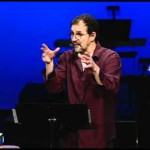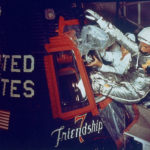We run our website the way we wished the whole internet worked: we provide high quality original content with no ads. We are funded solely by your direct support. Please consider supporting this project.

Love and Free Will
God could have easily created a world in which nothing evil could ever happen. But this world would not have been capable of love. God could have preprogrammed agents to say loving things and to act in loving ways. He could even have preprogrammed these automatons to believe they were choosing to love. But these preprogrammed agents would not genuinely be loving. Love can only be genuine if it’s freely chosen. Which means, unless a personal agent has the capacity to choose against love, they don’t really have the capacity to choose for it.
In fact, the concept of a “preprogrammed lover “ is completely meaningless, similar to (say) the concept of a “married bachelor” or a “round triangle.” The reason God can’t create these things is not that he lacks any power, but because a “married bachelor” and a “round triangle” are self-contradictory. They’re equivalent to nothingness, so it’s no limitation on God to say he can’t create them. So too, the reason God can’t create a “preprogrammed lover” is because the very idea of an agent who is capable of love but not capable of choosing against love is meaningless.
If God’s primary purpose in creation is raising up a people who are capable of receiving and reflecting his love and carrying out his will “on earth as it is in heaven,” these people will have to have the potential to choose against love. The price of the possibility of love is freedom, and with freedom comes the possibility of evil.
The Bible is emphatic on its teaching that humans possess free will and are capable of originating evil. Notice, for example, that in the very first chapter of the Bible God commands humans to be fruitful and exercise dominion over the animal kingdom and the earth. The fact that God must command us to carry out his will reveals that we are not forced to carry out his will. We can choose to obey God or not, as the subsequent narrative makes clear.
The same thing takes place in the next chapter when God commands Adam not to eat of the “Tree of the Knowledge of Good and Evil” in the middle of the Garden. The fact that God had to command Adam to obey reveals that Adam wasn’t preprogrammed to carry out his will, as the subsequent narrative makes clear.
Human free will is manifested in the fact that, throughout Scripture, God gives us choices and calls on us to choose the way he knows is best. To give just a few illustrations, notice the way God talks to the Israelites when finalizing his covenant with them at Mount Sinai. He says:
See, I set before you today life and prosperity, death and destruction. For I command you today to love the Lord your God, to walk in his ways…then you will live and increase, and the Lord your God will bless you in the land you are entering to possess. But if your heart turns away and you are not obedient, and if you are drawn away to bow down to other gods and worship them, I declare to you this day that you will certainly be destroyed…I have set before you life and death, blessings and curses. Now choose life, so that you and your children may live…(Duet 30:15-19).
God gives the Israelites a choice to either choose life (which means choosing to love and obey him) or to choose death (which means rejecting him). God obviously hopes they’ll choose life, but it is ultimately up to them to decide. In a world that is centered on love, even God can’t be guaranteed to always get what he wants.
Another clear example of the Lord placing choices before people, calling on them to choose to follow him, is found in Ezekiel 18.
If a man is righteous and does what is lawful and right….he shall surely live, says the Lord GOD….The person who sins shall die….But if the wicked turn away from all their sins…they shall surely live; they shall not die.
Having laid out the choices before us, God discloses his own feelings about the matter when he asks:
Have I any pleasure in the death of the wicked, says the Lord GOD, and not rather that they should turn from their ways and live?… Cast away from you all the transgressions that you have committed against me, and get yourselves a new heart and a new spirit! Why will you die, O house of Israel? For I have no pleasure in the death of anyone, says the Lord GOD. Turn, then, and live. (Ezek. 18:5,9, 20, 23, 31-32).
The Lord makes it emphatically clear that he doesn’t want anyone to perish. He takes no pleasure in the death of the wicked. He rather wants everyone to embrace the life he offers them. But because love must be freely chosen, he cannot simply decree that he will get what he wants. He pleads with people to turn to him, but he will not coerce them.
Photo credit: FotoRita [Allstar maniac] via Visual Hunt / CC BY-NC-ND
Category: General
Tags: Free Will, Love, Open Theism
Topics: Free Will and the Future
Related Reading

Why believe in free will? [Video]
In this video excerpt from his April 29, 2012 sermon tracing the Pietistic influence on Woodland Hills Church, Greg explains why they—along with John Wesley—believe that God does not control everything, but rather gives human beings free will.

Lord Willing? Part 2
In Part 2 of Greg’s interview of Jessica Kelley about her book Lord Willing?, they discuss the theology that helped Jessica through her son Henry’s illness and death. You can find Part 1 of the interview here, and part 3 here.

How People Misunderstand Open Theism
Open theism holds that, because agents are free, the future includes possibilities (what agents may and may not choose to do). Since God’s knowledge is perfect, open theists hold that God knows the future partly as a realm of possibilities. This view contrasts with classical theism that has usually held that God knows the future exclusively as a domain…

What is the significance of 1 Samuel 23:9–13?
“David heard that Saul knew that he was hiding in Keliah. Saul was seeking to kill David, so David wisely consulted the Lord as to what he should do. David said, ‘O Lord, the God of Israel, your servant has heard that Saul seeks to come to Keliah, to destroy the city on my account.…

Love Conquers All
Paul prayed in this way for the church at Ephesus: I pray that, according to the riches of his glory, [God] may grant that you may be strengthened in your inner being with power through his Spirit, and that Christ may dwell in your hearts through faith, as you are being rooted and grounded in…

What is the Gospel?
Our friend Roger Olson raised this question in response to accusations by Calvinists that those who espouse Arminianism do not “preach the gospel.” The same argument has been made about Open Theists. Olson writes: The complete gospel is communicated in Ephesians 2:8-9: “For it is by grace that you have been saved through faith and that not…
